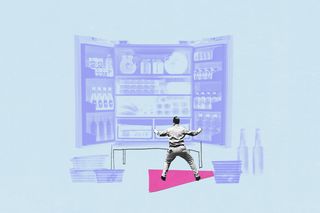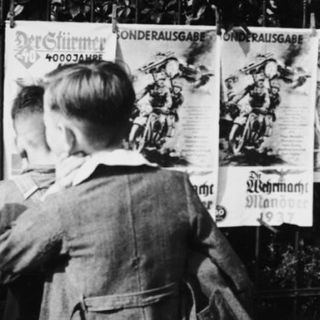
Are You the Pandemic Prepper, or the Freeloading Denier?
Certain personality traits make us cope with stress in different ways.

Are you the person who read the writing on the wall and bought, among other staples, two 5 kg bags of sugar weeks ahead of a possible extended self-quarantine? (Hey, no one said you were a good prepper.)
Or are you the roommate/partner/parent/sibling who ridiculed the person who stocked up — but now that the infection has spread, are dipping into their supplies so you don’t have to go out?
Welcome to the era of Covid19, when our true colors are revealed. Or, at least, our true coping styles.
Whether or not to prep — and how much — for an extended time in isolation has reportedly driven a wedge into families all around the world. But the decision is less about the current pandemic and more about how we personally cope in the face of stress — styles that are very closely linked to our individual personalities.
Pandemic preppers demonstrate a task-oriented, also known as problem-focused, coping style, which is a “response that aims at reducing or removing the source of stress by taking action to solve the problem or altering the situation if the problem cannot be removed,” according to a 2020 study on the relationship between personality and coping. The pandemic prepper has problem-solved the situation in advance: Food and supplies may become scarce; even if they don’t, they will be difficult to get as we prioritize social distancing in order to stay healthy. Hence — four 5 kg bags of atta and a million rolls of toilet paper.
Related on The Swaddle:
Using Social Media to Cope With Stress May Cause More Stress
By contrast, the freeloading denier is displaying an avoidant-oriented coping style. Avoidant-oriented coping, explain the study authors, “can take a form of activities that allow people to emotionally or physically distance themselves from the stressor by, for example, denying, engaging in distracting behavior (e.g., performing a different task) or employing maladaptive behaviors such as alcohol or drug abuse.” (Quarantini, anyone?)
There’s a third coping style — emotion-oriented coping — that doesn’t involve denial but instead focuses on managing one’s personal distress by talking about feelings, by looking for emotional support from friends and family, etc. In our current environment, this person could be termed the freeloading weeper.
Many things determine how a person copes in the face of stress. One is the effect of other people — the mass hysteria around the current pandemic is, in large part, responsible for getting even avoidant- and emotion-oriented copers to take action and stock up on everything from toilet paper to hand sanitizer, causing shortages all over the world. Past traumatic experiences can also help determine how one copes in the face of major stress.
However, much of our coping style is simply rooted in our personalities. Psychologists have found certain traits among the “Big Five” — which are generally accepted as forming the basis, to various degrees, of all individuals’ personalities — are associated with each coping style. (If you don’t resonate with any of the coping personalities described above, or simply need a way to distract yourself while self-quarantining, you can check out your Big Five personality profile here.)
For instance, individuals high in neuroticism — or those who are more emotionally volatile and prone to negative emotions — tend to be emotion-oriented or avoidant-oriented copers. These personalities are likely not going to be the ones going out and stocking up.
The pandemic preppers are likely to score highly in on the trait of extroversion, which describes a collection of tendencies around energy level, assertiveness, and talkativeness. Many, but certainly not all, people who score highly on extroversion are likely to cope by focusing on problem-solving action, research suggests. People who score highly on the Big Five trait of openness — aka the tendency to enjoy and seek out new experiences and knowledge — are more prone to task-focused coping, too. People high in conscientiousness (tendencies toward organization and thoroughness) may also be more likely to cope by prepping; these people are more cautious in their decision to take action, but do “focus on organizing plans that will alleviate the impact of a stressful situation,” the study authors explain. And finally, people high in agreeableness (tendencies around compassion, cooperation, and friendliness) are more likely to deal with the stress of a pandemic (or anything, really) by seeking social support — aka emotional-oriented coping.
Of course, all personalities are a mix of these five traits — just like there’s no one way to be, there’s no one way to cope, and the interplay of the five traits as well as past experiences means coping styles can’t be linked hard-and-fast, cause-and-effect to personality.
But maybe, just maybe, if you appreciate the way your roommate/partner/parent/sibling’s personality differs from yours, you’ll be able to appreciate their coping style, too. At the very least, it’s worth acknowledging the pandemic preppers in our lives are keeping the freeloading deniers (hello!) and weepers alive and healthy.
Liesl Goecker is The Swaddle's managing editor.
Related


Why Won’t People Stop Going Outside, Even During a Literal Pandemic
